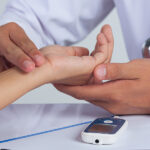Why Do Some Gym Goers Have Heart Attacks? Hidden Risks Behind the Fitness Hustle
The world has started valuing physical fitness and self-improvement. Here, gyms have become a second home for millions. There are weightlifting, cardio sessions, etc., in fitness centers that are often portrayed as sanctuaries of health. Still, headlines now and then remind us of a troubling reality: fit, seemingly healthy individuals collapsing at the gym due to heart attacks. It raises a very important question—why do some gym-goers suffer cardiac events despite their active lifestyle? The answer is more layered than you might expect. Regular exercise is beneficial and there is not any single doubt about it. But there are many overlooked factors—like hidden heart conditions, poor training practices, and lifestyle habits. All these factors can really lead to significant risks. Let us break down what you should know to protect your heart while pursuing your fitness objectives.
The Myth of “Too Fit to Fail”
It is easy to assume that if someone is lean, muscular, and train daily, they must be healthy. But fitness does not always equal heart health. Many gym-goers focus on external results like muscle tone, fat loss, endurance but internal health, especially heart function does not get attention in a manner it needs until it is too late. People with undiagnosed congenital heart defects, early-stage arterial blockages, or genetic predispositions might not show any outward signs. All these issues when combine with intense physical stress, the result can be catastrophic. This is a main reason why regular cardiovascular screenings should be just as prioritized as lifting routines and protein intake.
Hidden Heart Issues That Go Unnoticed
1. Overtraining Syndrome
More is not always better. Overtraining can raise stress hormone levels, disrupt sleep, increase resting heart rate, and even lower the heart rate variability—a known indicator of cardiac stress. When your body does not get enough time to recover, it remains in a constant state of strain that puts your cardiovascular system at risk. It is especially dangerous when combined with high-intensity interval training (HIIT) or heavy weightlifting without accurate breaks.
2. Dehydration and Electrolyte Imbalance
A good sweat may feel rewarding, but dehydration does more harm than most people realize. Without adequate fluids, blood can become thicker which can force the heart to work harder to circulate it. The loss of important electrolytes like potassium, magnesium, and sodium can disrupt the electrical rhythm of the heart that potentially leads to arrhythmias or even cardiac arrest during strenuous workouts.
3. Steroid Misuse and Supplement Abuse
In the sake of some rapid gains, some gym-goers do the biggest mistake. They turn to anabolic steroids or unregulated supplements. Steroids can thicken the heart muscle, raise blood pressure, and increase cholesterol as well. All these things are red flags for heart health. Even seemingly harmless pre-workouts loaded with stimulants can spike heart rate and blood pressure that push the heart beyond safe limits. The danger compounds if there is an underlying issue.
Recognizing the Warning Signs
Many symptoms of heart distress are misattributed to workout fatigue. Watch out for:
- Strange shortness of breath
- Chest tightness or discomfort in it
- Dizziness or lightheadedness during or after bodybuilding
- Heart palpitations or irregular heartbeats
- Excessive fatigue, even after rest
If any of these sound familiar, it is not a “no pain, no gain” moment—it is really a red flag. Don’t brush it off. Early intervention can save lives.
Stay Safe: Heart Health Tips for Gym Enthusiasts
1. Get Regular Heart Checkups
You can be of any age and have super fitness level, a periodic cardiovascular check can detect conditions you may not feel or see. An ECG, stress test, or 2D Echo can reveal issues like arrhythmia or blocked arteries. If you have never had a baseline heart screening, it is the time.
2. Train Smart, Not Just Hard
Your workout plan should be according to your body’s capacity. Schedule proper rest days, vary your training intensity, and do not push beyond limits without medical clearance. It will be good to use wearables to track your heart rate and understand your body’s patterns—especially during high-intensity sessions.
3. Prioritize Hydration
Drinking enough is important for replenishing electrolytes. Coconut water, electrolyte-rich drinks, or natural salts can restore steadiness and keep your heart rhythm stable. There is a need to avoid diuretics or excessive caffeine around workouts because they can further dehydrate the body.
Why Young Athletes and Gym-Goers Are Increasingly Vulnerable
The age group once thought immune to cardiac issues—those under 40—is now reporting rising cases of gym-induced heart attacks. Lifestyle factors like high stress, poor sleep, processed food consumption, and smoking silently build cardiovascular risk over time. Add intense workouts to that mix, and it becomes a dangerous cocktail. This trend has led cardiologists worldwide to urge even young, fit individuals to undergo preventive screenings and understand their personal heart risk profiles. Genetics also play a very important role—someone with a family history of heart sickness may be more vulnerable despite appearing outwardly healthy.
Where Fitness Meets Responsibility
It is inspiring to see people take charge of their physical fitness. But with that discipline must come awareness. The gym is a place to grow stronger—not to ignore signs of internal distress. Balancing ambition with caution is key to long-term health. That includes regular medical consultations, informed supplement use, and staying alert to what your body is really telling you. The good news? Heart issues can often be managed, treated, or even reversed—if detected early. Prevention is always better than cure, mainly when it comes to the heart.
Final Words
Your heart powers everything you do—from your first morning jog to your final rep at the gym. It works silently, tirelessly, and often goes unappreciated. But when it falters, the consequences can be life-altering. As more people going the gym to get fit, let us not forget the engine that keeps it all running: the heart. If you are serious about your fitness journey, take your heart along for the ride—not just your muscles.
Your Heart Deserves the Best: Consult with Dr. Udgeath Dhir
Your heart deserves the best care possible. With Dr. Udgeath Dhir, you receive world-class treatment backed by advanced technology and a compassionate approach. Whether it is consultation, surgery, or follow-up recovery guidance—Dr. Udgeath Dhir and his team stand with you at every step of your journey. Book your appointment today and take the first step toward a healthier tomorrow.



